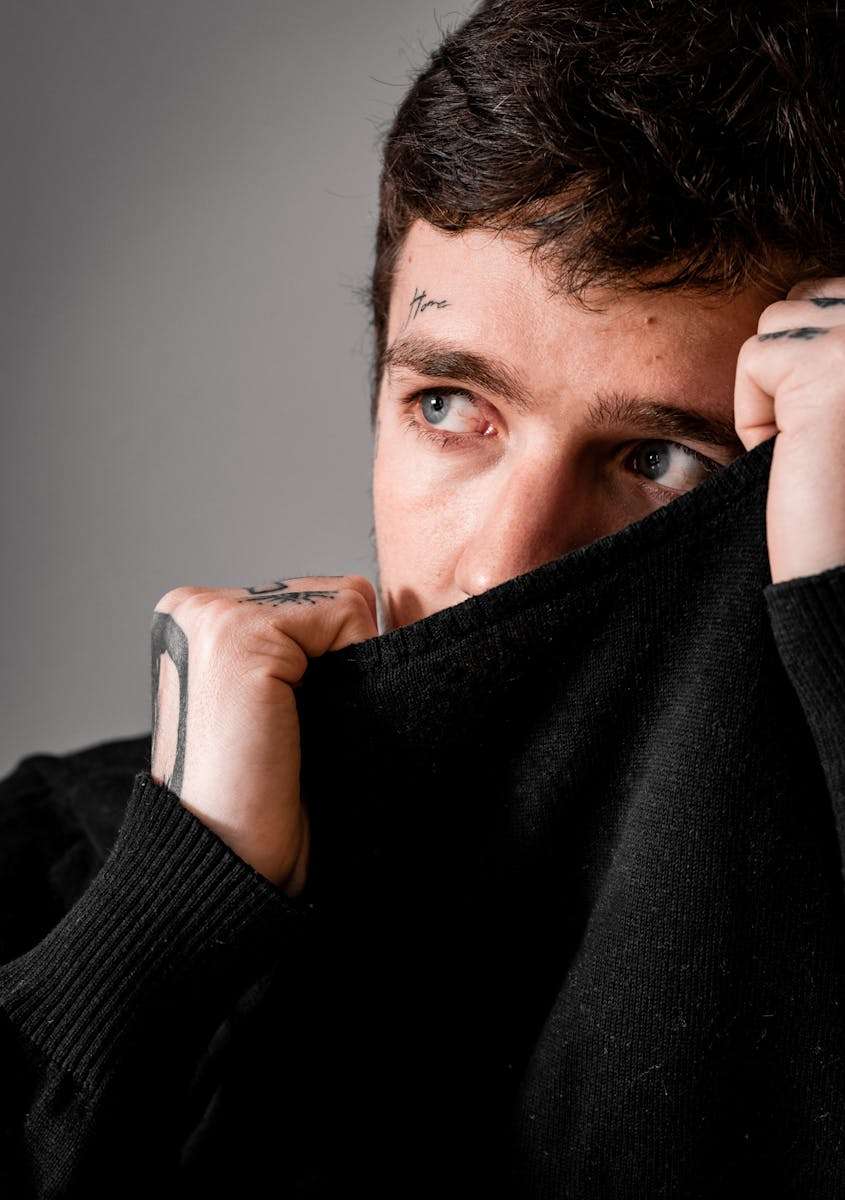fACING FEARS
All About Anxiety
Facing anxiety can feel daunting because it’s not just a fleeting worry, but rather a a constant companion that can make everyday tasks feel like climbing mountains. When you’re anxious, your nervous system becomes hyperactive which leads to a wide array of physical discomforts accompanied with some distressing thoughts and emotions that can make it feel as if you’ll never be able to relax ever again. The causes of anxiety disorders are complex and can involve a combination of genetic, biological, environmental, and psychological factors. Trauma, chronic stress, and genetic predisposition may contribute to their development but it is important to note that anxiety is a very common emotion and can be treated. At Epios Therapy we can begin unraveling the complexities of anxiety to help you regain your life. Remember you’re not alone in this struggle, and there are ways to lighten the load.

Anxiety Symptoms
Anxiety is a complex emotional and physiological response characterized by feelings of worry, fear, or apprehension that can interfere with daily life. It’s your brain’s way of trying to protect you, but sometimes it can make things feel overwhelming.
Symptoms of anxiety can vary from person to person but commonly include feelings of nervousness, restlessness, or tension, along with increased heart rate, rapid breathing, sweating, trembling, difficulty concentrating, insomnia, and experiencing intrusive thoughts or worries that are difficult to control. Physical symptoms such as fatigue, muscle tension, and gastrointestinal issues can also accompany anxiety. Symptoms of anxiety can vary from person to person but commonly include feelings of nervousness, restlessness, or tension, along with increased heart rate, rapid breathing, sweating, trembling, difficulty concentrating, insomnia, and experiencing intrusive thoughts or worries that are difficult to control. Physical symptoms such as fatigue, muscle tension, and gastrointestinal issues can also accompany anxiety.
Types of Anxiety
Generalized Anxiety Disorder (GAD):
One of the most common mental health conditions in the world today, generalized anxiety disorder is when stress or preoccupations of the future cause us to be unable to live in the moment. Individuals with GAD experience excessive worry and anxiety about a wide range of everyday events and situations. The worry is often disproportionate to the actual circumstances and frequently impedes a person’s ability to recharge or relax.
Social Anxiety Disorder
People with social anxiety disorder have an intense fear of social situations and a persistent worry about being judged or embarrassed in public. This can lead to avoidance of social interactions but can also lead to a very lonely and unfulfilling life. Social anxiety is challenging as it impedes people from building connection, despite it being essential to overcome some of the hurdles of loneliness and anxiety.
Panic Disorder
This involves recurrent and unexpected panic attacks—sudden episodes of intense fear or discomfort that reach a peak within minutes. Panic attacks can be accompanied by physical symptoms such as chest pain, shortness of breath, and dizziness. Panic disorder is especially challenging due to the severity of the anxiety as well as the physical distress that is accompanied with the feelings of doom.
Specific Phobias
These are intense fears of specific objects or situations, such as health concerns, heights, flying, animals, or enclosed spaces. The fear is often disproportionate to the actual threat posed by the phobic stimulus. Specific phobias are challenging but fortunately enough, because it is often an isolated fear, it makes tackling it often quite surmountable.
Ways We Address Anxiety
Cognitive-Behavioral Therapy (CBT):
CBT is a widely researched and effective form of therapy for anxiety. It focuses on identifying and challenging irrational thought patterns and behaviors that contribute to anxiety. Through CBT, individuals learn coping strategies, problem-solving skills, and techniques to manage anxious thoughts.
Exposure Therapy
This form of therapy is particularly helpful for specific phobias and PTSD. It involves gradually and systematically exposing individuals to the feared object or situation in a safe and controlled manner, helping them build tolerance and reduce anxiety over time.
Acceptance and Commitment Therapy (ACT)
ACT focuses on accepting one's thoughts and feelings rather than trying to eliminate or control them. It encourages individuals to live in alignment with their values, even in the presence of anxiety.
Mindfulness-Based Therapies
Practices such as mindfulness meditation, part of Mindfulness-Based Stress Reduction (MBSR) or Mindfulness-Based Cognitive Therapy (MBCT), can help individuals develop non-judgmental awareness of their thoughts and feelings. This increased awareness can reduce the impact of anxious thoughts and promote a sense of calm.
Dialectical Behavior Therapy (DBT)
DBT incorporates mindfulness and skills training to help individuals regulate their emotions, have healthier communication, increase distress tolerance, and give concrete coping skills which can be particularly beneficial for those with anxiety.
Psychodynamic Therapy
This form of therapy explores unconscious processes and unresolved conflicts that may contribute to anxiety. By gaining insight into these underlying issues, individuals can work toward resolving them and reducing anxiety.
Interpersonal Therapy (IPT)
IPT focuses on improving communication and interpersonal skills. It may be particularly useful for individuals whose anxiety is closely linked to relationship issues. This modality is especially utilized for social anxiety.
Get Help For Your Anxiety Today
Deciding to get therapy for anxiety is like finally taking a deep breath after holding it in for way too long – it’s a big sigh of relief. But getting started can feel a bit like stepping into the unknown, with all sorts of questions and uncertainties swirling around in your head. It’s not always easy – there are setbacks and stumbling blocks along the way – but with each session, you’re building up your resilience and learning new tools to cope. Plus, there’s something incredibly empowering about realizing that you have the power to change your relationship with anxiety – it’s not the boss of you anymore. And with each small victory, the weight of anxiety starts to lift, making room for a sense of peace and calm to settle in. At Epios Therapy it we strive to assist in your pursuit of freedom from yourself and encourage you to reach out today to begin this collaborative journey.
